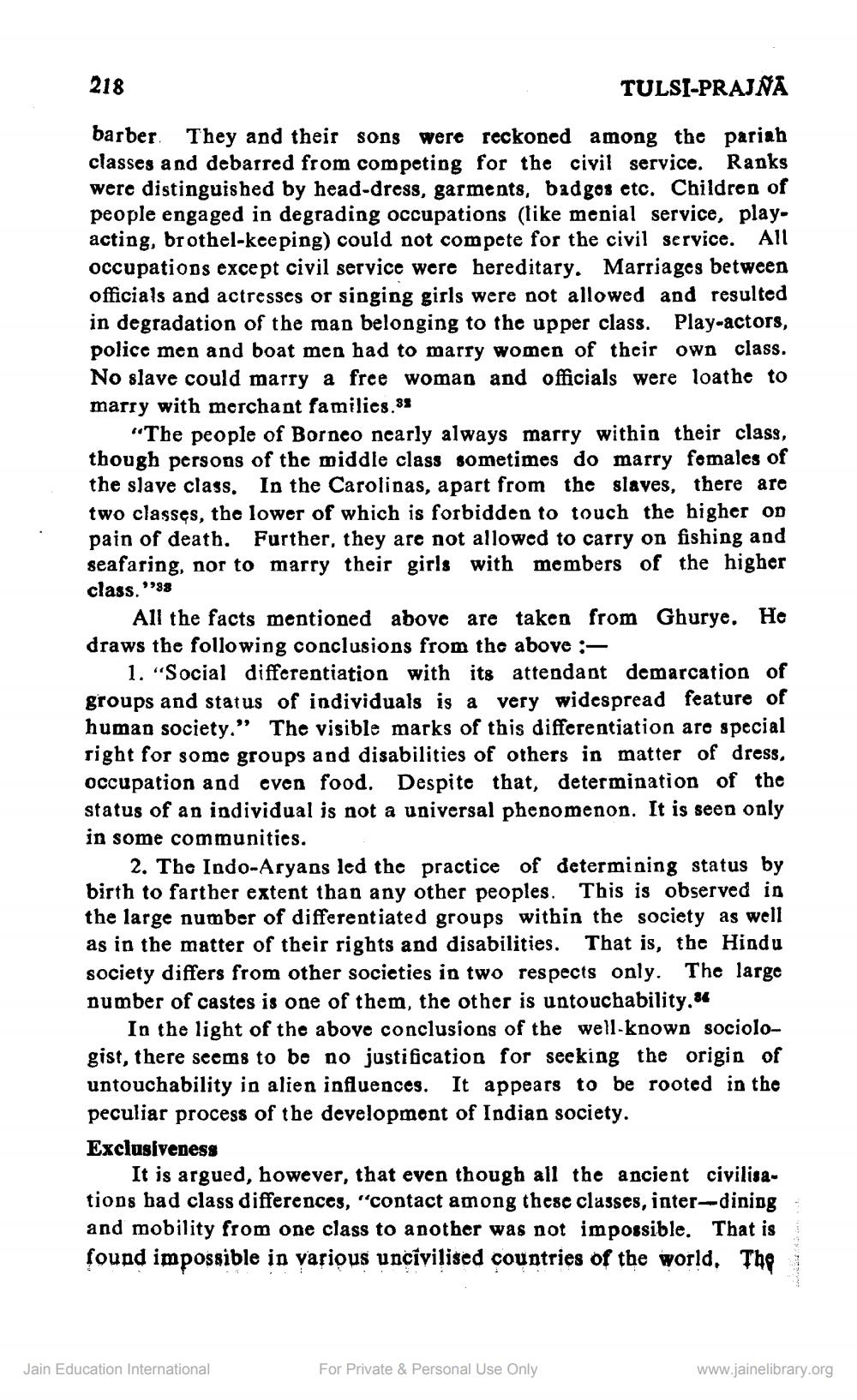________________
218
TULSI-PRAJNA
barber. They and their sons were reckoned among the pariah classes and debarred from competing for the civil service. Ranks were distinguished by head-dress, garments, badgos etc. Children of people engaged in degrading occupations (like menial service, playacting, brothel-keeping) could not compete for the civil service. All occupations except civil service were hereditary. Marriages between officials and actresses or singing girls were not allowed and resulted in degradation of the map belonging to the upper class. Play-actors, police men and boat men had to marry women of their own class. No slave could marry a free woman and officials were loathe to marry with merchant families.38
"The people of Borneo nearly always marry within their class, though persons of the middle class sometimes do marry fomales of the slave class. In the Carolinas, apart from the slaves, there are two classes, the lower of which is forbidden to touch the higher on pain of death. Further, they are not allowed to carry on fishing and seafaring, nor to marry their girls with members of the higher class."88
All the facts mentioned above are taken from Ghurye. He draws the following conclusions from the above :
1. “Social differentiation with its attendant demarcation of groups and status of individuals is a very widespread feature of human society." The visible marks of this differentiation are special right for some groups and disabilities of others in matter of dress, occupation and even food. Despite that, determination of the status of an individual is not a universal phenomenon. It is seen only in some communities.
2. The Indo-Aryans led the practice of determining status by birth to farther extent than any other peoples. This is observed in the large number of differentiated groups within the society as well as in the matter of their rights and disabilities. That is, the Hindu society differs from other societies in two respects only. The large number of castes is one of them, the other is untouchability.se
In the light of the above conclusions of the well-known sociologist, there seems to be no justification for seeking the origin of untouchability in alien influences. It appears to be rooted in the peculiar process of the developmont of Indian society. Exclusiveness
It is argued, however, that even though all the ancient civilisations bad class differences, "contact among these classes, inter-dining and mobility from one class to another was not impossible. That is found impossible in various uncivilised countries of the world. The
Jain Education International
For Private & Personal Use Only
www.jainelibrary.org




